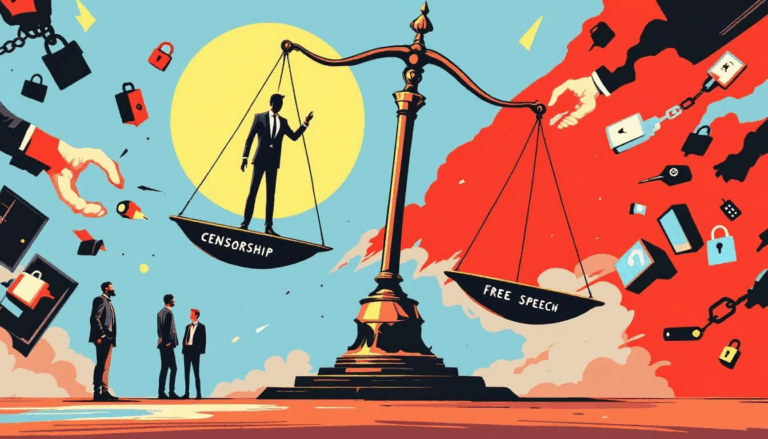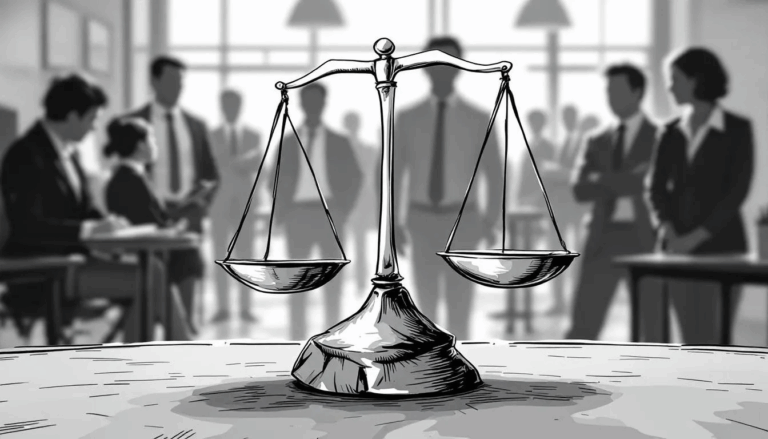Expert EEOC Lawyer Guidance for Workplace Discrimination
If you’ve experienced workplace discrimination or are facing issues that fall under the Equal Employment Opportunity Commission’s (EEOC) purview, you’re likely looking for a knowledgeable EEOC lawyer. These legal experts specialize in EEOC matters, defending your rights and guiding you through the complexities of EEOC complaints and litigation. This article offers a comprehensive overview of their role, the importance of their expertise in navigating your legal journey, and how they can assist you in achieving justice and fair treatment in the workplace.
Key Takeaways
- EEOC lawyers are essential for effectively navigating and fighting workplace discrimination, using their expertise in gathering evidence and understanding federal and state laws to represent their clients.
- EEOC attorneys guide clients through the complex EEOC complaint process, offer protection against retaliation, and advocate for fair treatment and compensation in the workplace.
- Choosing the right EEOC lawyer is crucial; consider their experience, success rate, communication skills, and your personal rapport to ensure they’re a dedicated ally in your legal battle.
Understanding the Role of EEOC Lawyers
Facing the Goliath of workplace discrimination, you need the David of an EEOC lawyer by your side. These legal professionals, including employment lawyers, are seasoned in the art of combat within the legal arena, representing clients throughout every twist and turn of the litigation process. Crafting a legal strategy is like preparing for battle, and EEOC lawyers skillfully gather evidence, pinpoint witnesses, and prepare the arsenal necessary to reinforce your claims. As strategists, they convincingly portray the story of discrimination, thoroughly examining each detail and preserving claims for future court battles.
In the maze of employment law, EEOC lawyers serve as your guide, wielding their expertise to illuminate the path forward under both state and federal laws. They’re well-versed in the nuances of ‘at-will’ employment states, ensuring that any termination is scrutinized to protect against federally protected discriminatory motives. With their deep understanding of the Equal Employment Opportunity Commission’s role, they empower you to hold your employer accountable and safeguard your employment rights. These legal champions stand watch, ensuring that your civil rights are upheld in the face of common, yet unacceptable, discrimination scenarios.
The Importance of Legal Representation in EEOC Claims
Addressing workplace discrimination without legal representation can feel like navigating a labyrinth without a map. Employment attorneys, specifically EEOC attorneys, are the cartographers plotting your course through the intricate landscape of federal employment laws. They are the guiding light through the complaint filing process, a path littered with strict timelines and procedural minefields, especially for federal employees. With their wisdom, even the most career-affecting aspects of disciplinary actions within federal agencies become less daunting, as they offer clear counsel through internal agency procedures and potential federal court involvement in cases involving the federal government.
Beyond the immediate turmoil of discrimination, EEOC lawyers help you see the forest for the trees. They work to make sure that your long-term career planning, along with benefits and retirement options, isn’t overshadowed by current disputes. With their assistance, you can confidently navigate the federal landscape, ensuring that your legal rights are recognized and upheld at every turn.
Types of Discrimination Cases Handled by EEOC Lawyers
While discrimination can take many forms, EEOC lawyers are skilled at tackling each one. Disability discrimination, for instance, is tackled head-on, ensuring equal treatment and addressing any history or perception of disability under the robust shield of the Americans with Disabilities Act. Age discrimination, whether it rears its head in hiring, firing, or pay, is met with the fortitude provided by the Age Discrimination in Employment Act.
Yet, the reach of EEOC lawyers extends further, into the realms of religious beliefs and practices, where they defend against adverse treatment as protected under Title VII of the Civil Rights Act. They also stand up for individuals facing discrimination based on sexual orientation or gender identity, championing the rights of those who are gay, associated with gay individuals, or transgender. In every case, they are the guardians of federal law, ensuring that no aspect of discrimination goes unchecked.
Navigating the EEOC Complaint Process
The EEOC complaint process is filled with deadlines and decisions. With only 180 calendar days from the act of discrimination to file a charge, time is of the essence. EEOC lawyers are the ones who synchronize the tick of the clock with state and local Fair Employment Practices Agencies, ensuring dual filing preserves your rights across jurisdictions. Whether online, in-person, by phone, or via mail, they know every pathway to file a charge of discrimination, advising on the route that best suits your situation.
Alternative Dispute Resolution is an option if there’s a chance for resolution before litigation becomes necessary. Rock employment lawyers can guide you through mediation, offering a swift and informal option for settlement, with a neutral party leading the way. Should you choose to venture beyond mediation, these attorneys are prepared to elevate your case, advising on the strategic benefits of involving an employment law attorney as you approach the gates of civil court.
Protection Against Retaliation and Wrongful Termination
EEOC lawyers provide a safety net for whistleblowers and others who courageously report misconduct, even when it feels like walking a tightrope. They provide the guidance needed to report allegations of fraud, waste, abuse, and mismanagement without the fear of reprisal. Thanks to the Whistleblower Protection Act, these legal allies have the tools to keep clients safe from the winds of retaliation.
Should retaliation rear its ugly head, these lawyers know the channels for filing complaints with the Office of Inspector General or the U.S. Office of Special Counsel, ensuring that no prohibited personnel practices go unchecked. They are the ones who seek justice, pressing for corrective actions like canceling disciplinary measures and securing back pay, while also ensuring fair treatment continues well after the investigation’s conclusion.
Equal Pay and Fair Compensation Disputes
EEOC attorneys are at the forefront of the fight for wage equality, using the Equal Pay Act to demand equal pay for equal work. When pay violations occur, they are the ones who step forward to represent workers, striving to recover the compensation rightfully owed. They don’t shy away from complex issues, such as:
- gender-based disparities in allowances
- discrimination based on race, color, religion, sex, or national origin
- retaliation against employees who assert their rights under Title VII
As attorneys from the Equal Employment Opportunity Commission (EEOC) enforce Title VII, they demand accountability from employers and work to create a fair and equal workplace for all.
Their advocacy is relentless, for they understand the weight of wage abuse and the impact on an employee’s life. By ensuring employers are held accountable, EEOC lawyers not only secure fair compensation but also reinforce the standards of equality in the workplace, in line with the Fair Labor Standards Act.
Sexual Harassment and Hostile Work Environment Claims
EEOC lawyers shine a light on the dark corners of the workplace, where sexual harassment and hostile environments can persist. They ensure that employers take allegations seriously, conducting prompt investigations and taking the necessary steps to rectify the situation. Sexual harassment encompasses a range of unwelcome behaviors, and EEOC lawyers guide clients through the process of filing a charge, laying the groundwork for potential legal action.
Yet, their support doesn’t end with filing a charge. They stand beside both victims and alleged harassers during investigations, advocating for fairness and adherence to legal standards. When harassment is confirmed, they are the champions who insist on appropriate employer actions to safeguard victims and prevent further incidents. And if the investigation’s outcome is unsatisfactory, they are ready to advise on the next steps, ensuring that every client’s rights are vigorously defended.
Accommodations for Disabilities and Religious Practices
EEOC lawyers act as bridge-builders for those needing accommodations for disabilities or religious practices, fostering understanding between employees and employers. They guide clients through the accommodation request process, helping to secure necessary documentation and engaging in negotiations to find suitable solutions. Whether it’s telecommuting, modified work schedules, or workplace modifications, these attorneys advocate for a range of reasonable accommodations that align with their clients’ needs.
Religious accommodations also fall within their purview, ensuring flexible scheduling and dress or grooming policy adjustments are made when needed, while also safeguarding employees from being compelled into religious activities. With their assistance, the rights to practice one’s religion and work without disability-related barriers are upheld with the respect they deserve.
Choosing the Right EEOC Lawyer
Several factors should guide your decision when it’s time to select your legal champion. An EEOC lawyer’s experience in cases similar to yours is the foundation upon which your trust is built. Their track record of success, responsiveness, and communication skills are the pillars supporting your journey to justice. Professionalism, reputation, and standing with the bar association are the beams that hold the structure together, ensuring a firm that stands tall in the legal community.
Most importantly, personal rapport is the threshold you cross into a successful legal partnership. Knowing that your attorney is not just a hired hand but a dedicated ally can make all the difference. As you sift through the choices, remember that the right EEOC lawyer is not just about legal acumen, but also about the personal connection that will carry you through the trials ahead.
Summary
Navigating workplace discrimination is a daunting task, but with the right EEOC lawyer by your side, it becomes a journey toward justice. From understanding the complexities of employment law to fighting for fair compensation, these legal professionals are equipped to handle every challenge. They are the guardians of your rights, ensuring that each step taken is one closer to a fair and respectful work environment. Let the expertise and dedication of an EEOC lawyer be your guiding light in the fight against workplace discrimination.
Frequently Asked Questions
What counts as discrimination?
Discrimination includes unfair treatment based on characteristics like race, religion, gender, sexual orientation, and disability, such as paying a female employee less than a male colleague for the same work or denying training opportunities based on ethnicity. It generally exists when an employer treats an applicant or employee less favorably due to factors like race, religion, or gender.
What to do if your boss is discriminating against you?
If you feel that your boss is discriminating against you, you should contact an employment law attorney right away and keep a record of all evidence of discrimination. It’s important to seek legal advice before filing a complaint.
What are the 4 types of discrimination in the workplace?
The 4 types of discrimination in the workplace are direct discrimination, indirect discrimination, harassment, and victimisation. Direct discrimination occurs when an employer treats an employee less favorably because of a specific reason, while indirect discrimination, harassment, and victimization are also forms of workplace discrimination.
What is the role of an EEOC lawyer?
An EEOC lawyer plays a vital role in representing clients in discrimination cases, preparing legal strategies, conducting investigations, and presenting compelling facts to uphold clients’ rights under federal law.



